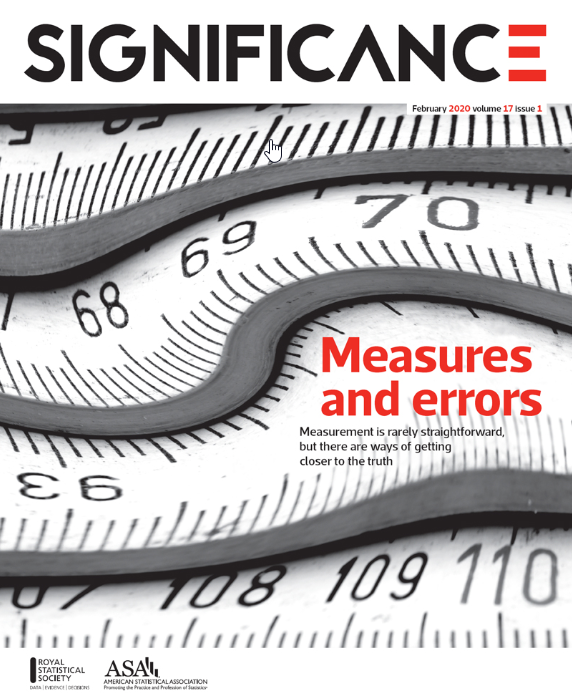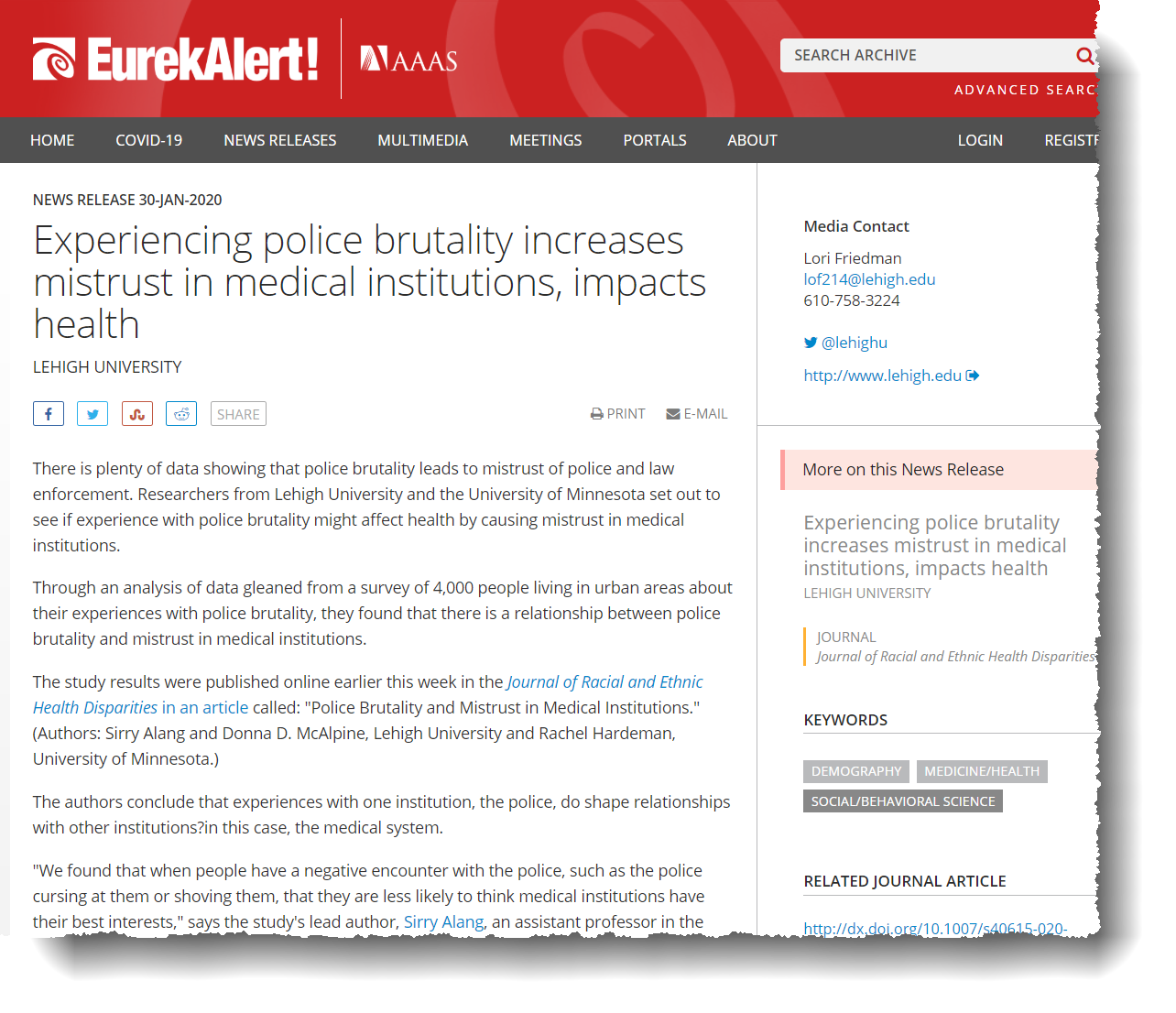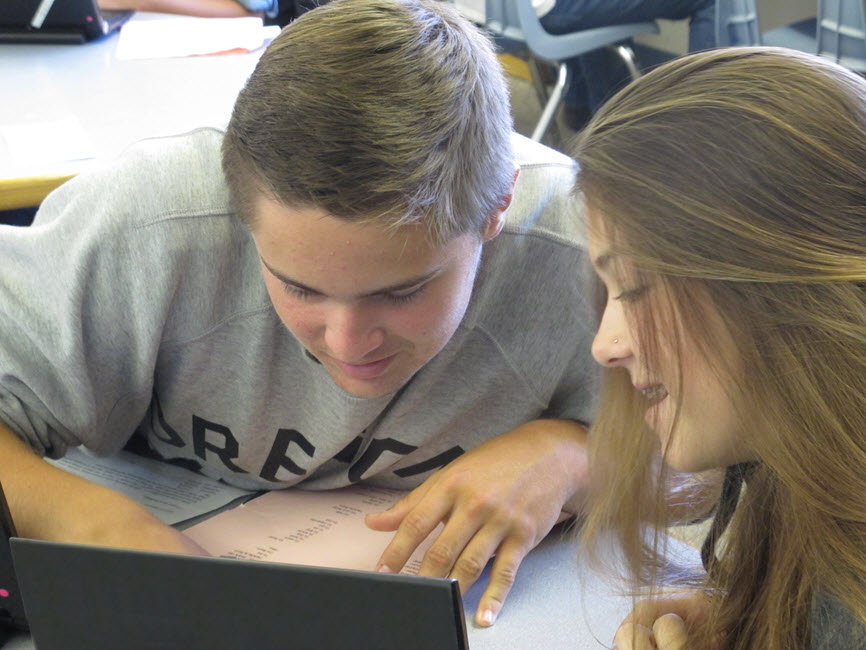Jumpstart Curators
These are close-ups of curation in process. No silver bullet solutions and polished scenarios but rather hunches and dispositions in action. Slices of practice with insights for hybrid curation.
Take, for example, middle- and upper-school librarian Cathy Retberg who, at the start of the pandemic, began tracking reliable information for herself. She started with a modest list of a few local, state and national experts, the Johns Hopkins website and a couple of news stories in a LibGuide. On a hunch, she sent an e-mail blast inviting teachers to add to her list.
“If opportunity doesn’t knock, build a door.” ― Milton Berle
Her enterprising low-stakes approach to curation has been successful. Current, accurate information is added almost every day to Menlo School’s (CA) impressive COVID-19 LibGuide. “It’s mostly a three-person show — me plus two upper-school Biology teachers — and occasionally we ask our statistics teacher to verify stories that are outside our expertise.” When administrators featured it in official school emails, parents started checking it and teachers began to incorporate it into assignments.
What’s your jumpstart curation?
- Redesign our online school
- Curate for an antiracist conversation (no kitchen sink lists)
- Contrast candidates on an election issue
- Design a mask for a Supreme Court justice
- Invite a daily check-in
- Represent your point of view as a meme
- What’s funny about #pandemic — now draw it
- Evaluate your polling requirements — are they free and fair?
- Choose your cultural or scientific word of the year
Substitute Curators

In Alexandria (VA), Anne Applin, head librarian at the Thomas Jefferson High School for Science and Technology (TJHSST), has a great deal of experience supporting science research and writing. For one assignment, she developed a research guide to large datasets so that Research Statistics II classes could apply their newly acquired statistical knowledge to analyze data about a current issue.
Before her district began distance learning, Anne had been accustomed to having student researchers begin by browsing for topic ideas in donated print issues of Significance, a general-audience magazine published by the Royal Statistical Society and the American Statistical Association. Only a small portion of these issues are available digitally.
Teaching opportunity: Information as a commodity becomes personally relevant to students when they experience the significant benefits of open access and the inequities that paywalls create.

Although not a precise equivalent, Anne has substituted EurekAlert!, a news-release distribution platform operated by the nonprofit American Association for the Advancement of Science (AAAS). This service lightly edits and publishes announcements of science research and reports issued by universities, journal publishers, medical centers, government agencies, and corporations. Students can browse for ideas related to current issues, read the short summary provided and, in some cases, follow the link to the full text.
What might you substitute…?
Make a list of “high touch” aspects of your school’s program. Then look for social and physical equivalents that align with social distancing requirements. Aim to retain the intellectual and emotional integrity of the physical experience without adding complexity or introducing technology barriers for families.
For instance, hands-on observational science might be replaced by a combination of at-home observation, data collection and asynchronous visual explorations such as:
- Local volunteer opportunities in biodiversity science
- Age-appropriate science observation crowdsourcing
- Animal-study live cams
- Simulations and virtual labs
- “Civic science” curriculum (examples)
Data Curators
In New Delhi, Linda Hoiseth, the middle- and high-school librarian at the American Embassy School, has curated resources for the International Baccalaureate (IB) Extended Essay (EE) for several years. A required component of IB is that students research a topic of interest related to one of their core subjects and submit a 4,000-word essay.
Before distance learning, the school’s science teachers discouraged students from working with published datasets in their essays, even though the IB permits them. Instead, they were expected to design and conduct their own experiments — then analyze the data, a process that the teachers felt resulted in stronger essays.
From lab science data to large datasets
When their EE Coordinator recommended that students shift from conducting their own experiments during the pandemic, Linda looked critically at her curated list and substituted published experimental data.
“Since students must form their own interpretations of data without conducting experiments, they now need access to raw datasets — beyond what gets published in science journals.”
Linda is enthusiastic about Google’s Dataset Search which indexes datasets stored in public and private repositories across the Web. In one-to-one online sessions, she coaches students on selecting relevant keywords and limiting results by format, topic and time. She also calls attention to contextual information that can help them assess the raw data’s quality.
“Google’s Dataset Search is a game-changer! There’s no initial barrier — the simple keyword search feels familiar.”
Anne curated specific resources such as Harvard Dataverse in which there was a high probability of finding public datasets that related to students’ research questions. She coached students on strategies for finding trends, gaps, and inconsistencies. Statistics students’ final projects included a comparison of the cost of medical prescriptions in rural vs. urban areas, identification of world gender gaps in primary education and an investigation of whether height is a statistically significant predictor of an outstanding NFL quarterback. At the end of the project, she helped students situate their findings within the topic’s scholarly discourse identified in their references.
Resources for teaching civic data literacy are growing, in part because wide-reaching data collection by every government, corporation and institution (with little regulation or protection) has become the basis for an array of policy decisions and interventions that impact every aspect of our lives.
Curators as Coaches
Both librarians are searching for effective ways to coach hybrid classes online. Anne expects that she will continue to attend Blackboard Collaborate Ultra classrooms in order to identify resources as needed. Linda is puzzling about how to support particular groups of Y1 diploma candidates in the IB Core class:
“It’s harder to catch students who are struggling. We’ve hosted Zoom drop-in sessions with a decent number of students attending, some Google hangout chats, and Zoom calls with individual students to talk through ideas. But if they don’t attend and they’re not doing the work they need to, it can be hard to get them to respond to offers of help.
How might you coach…?
- Record “How-To’s” for projects and databases and make them findable
- Invite exploration of a theme
- Craft explict lessons that can pivot
- Create teaching templates (http://noodle.to/teachersandguns) that students download into NoodleTools
- Stay visible – offer multiple contact options (1, 2, 3)
Curators as Learners
Both Linda and Anne candidly acknowledge instructional challenges. Anne reports her initial discomfort with huge sets of data:
“I felt a bit out of my comfort zone, despite being pretty adept at statistics. The sheer size made me uncomfortable.” I thought, ‘How do I advise students to manage such large datasets and analzye them in relation to their current issue?'”
Linda has stepped back to assess the scope and sequence of her instruction. She’s realized that data literacy skills are not being taught consistently throughout the library’s information literacy program:
“Although individual students may learn to analyze data specific to particular courses, I’m not teaching practical data analysis skills systematically. I do what I can when I’m given the opportunity to work with students but, honestly, it’s more hit or miss than I would like.”
What might you want to learn…?
- Curation as a teaching tool: Heather Bailie’s digital essay
- Curation vs. collection development: Debbie Abilock’s OER “Curriculum Curation” module
- Teaching Your Class Online: Essentials and Practice, Stanford Continuing Studies. (10 hrs., 6/13-6/17).
An asynchronous course on the essentials of online teaching and how to troubleshoot student issues online. - Resilient Teaching Through Times of Crisis and Change, U Michigan (4 weeks, est. 25 hrs, self-paced)
“Resilient teaching is the ability to facilitate learning experiences that are designed to be adaptable to fluctuating conditions and disruptions.” Consider new tools and interactions in this free course for college instructors (weeks 2-3 are relevant to K-12).
The Dispositions to Manage Change
During a Zoom staff meeting, a teacher was longing for face-to-face learning. In response, a colleague asked: “What if we shifted from ‘presuming loss’ to asking what actually wasn’t necessary or even useful before?” While we all can acknowledge current uncertainties and anxieties, we can see that certain dispositions allow us to discover instructional opportunities and pivot successfully.
